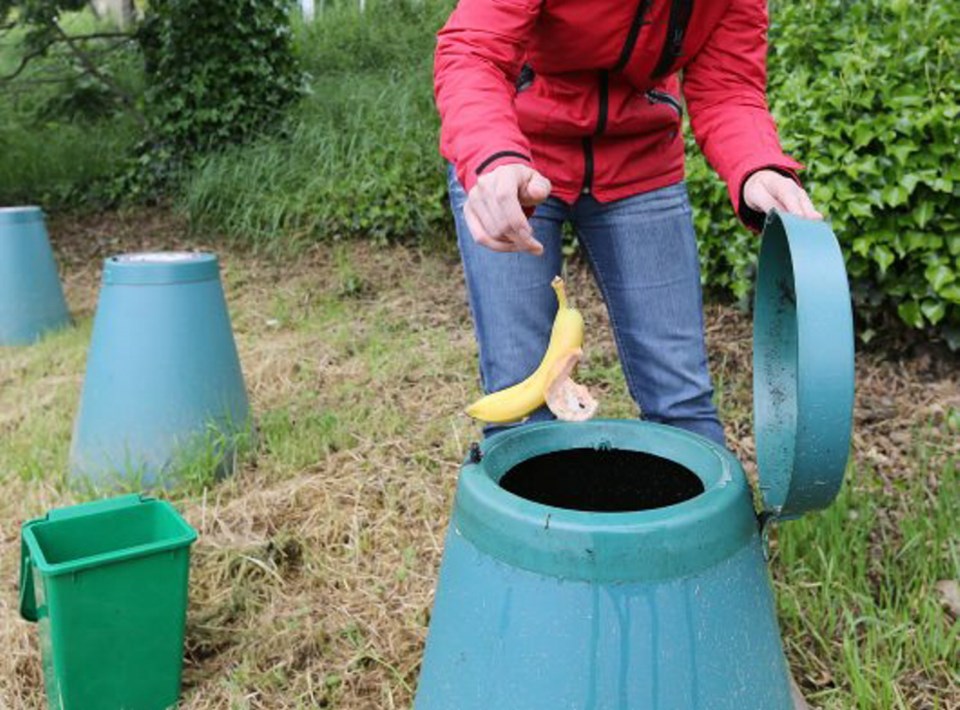Dear Tony: We have seen a few articles and interviews on the new organic waste requirements.
Our strata corporation is a 32-unit apartment building with no underground parking. Our rental building was converted to condos in 1975. We do not have any space to put another container on our property. To do so would require the removal of one common-area parking space, all of which are at a premium because we have only 16 spots.
We would appreciate some direction on the new requirements and to be able to understand how mandatory they really are. Before we remove someone’s parking, we need to make sure we have no other options.
Nazrill M.,
Penticton
Dear Nazrill: The requirements actually apply to organic waste overall.
Strata corporations affected by the new regulation are in Metro Vancouver at this time, but don’t be surprised to discover your local communities in the Interior and on Vancouver island are implementing increased waste management requirements.
Strata corporations are under increasing pressure to manage their waste at higher standards, with significant reductions in landfill contributions to reduce cost and environmental impact.
As of Jan. 1, new rules are in effect to encourage residents and businesses in Metro Vancouver and Greater Victoria to separate food waste from regular garbage. Initial enforcement will focus on large generators of food waste, such as supermarkets and major restaurants and hotels.
The first six months will be an education period when no penalties will be charged in order to give residents and businesses additional time to implement effective plans for separating food waste from the garbage. As of July 2015, a surcharge will apply to garbage where the waste contains more than 25 per cent organic waste. Typically these estimates likely apply only to large waste producers such as restaurants and grocery stores, so the 25 per cent threshold is unlikely to have much impact on strata corporations this year. But in 2016, the amount permitted drops to 10 per cent organic waste and five per cent in 2017.
This will provide strata corporations with sufficient time to set up additional services with their waste-management providers, but more importantly, to educate the occupants of their buildings.
Even if organics management is not mandatory in your region, your strata can still consider using this opportunity to start an organics education program and management option for your owners.
In addition to the availability of space for organic receptacles, the greatest challenge that we have encountered with strata corporations is this public awareness in their building about the management of organic waste from each strata lot. Whether it is an apartment building, high-rise, low-rise or townhouse complex, there will be challenges for everyone in managing their recycling and organic waste.
Many multi-family buildings were not originally designed to contain and manage organic waste, so space constrictions and issues such as odour and proper ventilation will have to be addressed.
While some strata townhouse and bare-land communities have community gardens and on-site composting, very few strata buildings have a secure landscape area for composting, so organic-waste management is the only option.
A few tips to get your strata started.
Contact your local city hall and find out what waste-management requirements are in place for your region. Identify whether they have a company or service provider who can supply the strata with in-suite organics bins, either at no cost or a reduced cost, and distribute the bins to owners along with a simple instruction chart of how to manage their waste and the frequency and methods of disposal. Determine if any of the changes will require a significant change in use or appearance of common property.
The decisions to locate and administer the organic waste as a result may require a general meeting of the owners. Ultimately, if owners do not participate, the strata corporation will eventually pay the penalties. Everyone is in agreement that no one wants to be the garbage police in their strata corporation, so it requires the residents’ commitment to the program, and a period of time for cultural change.
One important factor to remember is that waste-management areas along with in-suite bins have to be maintained vigilantly, otherwise your community may be exposed to pest and rodent infestations and odours.
Look online for kitchen waste management guidelines in your municipality. In Victoria, go to www.crd.bc.ca and follow the links to Regional Kitchen Scraps Strategy.
Tony Gioventu is executive director of the Condominium Home Owners’ Association. Send questions to him by email to [email protected]. The association’s website is www.choa.bc.ca.



